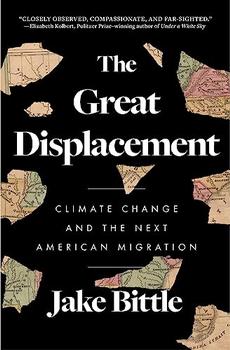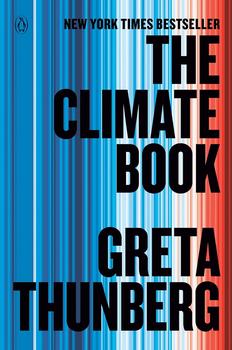Summary | Excerpt | Reviews | Beyond the book | Read-Alikes | Genres & Themes | Author Bio

The Secret World of Waste and the Urgent Search for a Cleaner Future
by Oliver Franklin-WallisAn award-winning investigative journalist takes a deep dive into the global waste crisis, exposing the hidden world that enables our modern economy—and finds out the dirty truth behind a simple question: what really happens to what we throw away?
In Wasteland, journalist Oliver Franklin-Wallis takes us on a shocking journey inside the waste industry—the secretive multi-billion dollar world that underpins the modern economy, quietly profiting from what we leave behind. In India, he meets the waste-pickers on the front line of the plastic crisis. In the UK, he journeys down sewers to confront our oldest—and newest—waste crisis, and comes face-to-face with nuclear waste. In Ghana, he follows the after-life of our technology and explores the global export network that results in goodwill donations clogging African landfills. From an incinerator to an Oklahoma ghost-town, Franklin-Wallis travels in search of the people and companies that really handle waste—and on the way, meets the innovators and campaigners pushing for a cleaner and less wasteful future.
With this mesmerizing, thought-provoking, and occasionally terrifying investigation, Oliver Franklin-Wallis tells a new story of humanity based on what we leave behind, and along the way, he shares a blueprint for building a healthier, more sustainable world—before we're all buried in trash.
Excerpt
Wasteland
The stories began in early 2018. Always different, always the same. There would be a village, a town. Then, suddenly, plastic factories would arrive. Small operations: shredders, extruders. Nurdle factories. Men would appear, advertising work, profit to be made. Then: smoke. The smell of burning polymers in the night. Locals reporting headaches, breathing problems. In one case, children started to develop skin rashes. Dumps accruing in the fields, in waterways, in ditches, the labels invariably in foreign tongues.
Perak, Malaysia: Heinz beans wrappers, Flora margarine tub. Yeo Valley yogurt pot. Listerine mouthwash. Recycling bags from four London councils. Cat food pouches from Spain. Wafer packets from Germany. Factory offcuts from Australia. US postal service boxes. Fiji water bottles, Made in USA.
East Java, Indonesia: Gatorade bottle. Arizona Sweet Tea. Capri Sun packets from the UK. Dish soap from Finland. Whiskas cat food, Hershey's cookies. Even the ...
Wasteland is an engaging read, and Franklin-Wallis writes in a personable style lightened by occasional touches of wit. But it's hard not to come away feeling deflated, despairing at the sheer scale of our wastefulness—and how deeply embedded it is in our way of life. As the book convincingly argues, waste isn't just a byproduct of our consumer economy. In a very real sense, waste is what keeps it running. Corporations' very business model depends on disposability, on consumers buying—and throwing out—more and more stuff. "The modern economy is built on trash," as Franklin-Wallis pithily observes...continued
Full Review
(927 words)
This review is available to non-members for a limited time. For full access,
become a member today.
(Reviewed by Elisabeth Herschbach).
 Bill McKibben, author of The End of Nature
Sometimes it seems as if our main role as humans is to enjoy shiny things for a little while until they become discarded things. This is a fascinating and comprehensive tour of the second half of that equation – the tossed-out usually gets a thousandth the attention of the not-yet-purchased, but Oliver Franklin-Wallis does his best to redress that balance, in a book that wills you see the world quite differently than you did before.
Bill McKibben, author of The End of Nature
Sometimes it seems as if our main role as humans is to enjoy shiny things for a little while until they become discarded things. This is a fascinating and comprehensive tour of the second half of that equation – the tossed-out usually gets a thousandth the attention of the not-yet-purchased, but Oliver Franklin-Wallis does his best to redress that balance, in a book that wills you see the world quite differently than you did before. Gaia Vince, award-winning journalist and author of Transcendence and Nomad Century
Just as everything we consume comes from somewhere on earth, so too everything we produce must go somewhere on earth—even if we don't want to think about it. This book compels us to. A fascinating, deeply researched, and hugely important exposé of what happens to the stuff we no longer want, and the social and environmental cost of dealing with it. Revelatory, thoughtful, and honest about our complex relationship with waste.
Gaia Vince, award-winning journalist and author of Transcendence and Nomad Century
Just as everything we consume comes from somewhere on earth, so too everything we produce must go somewhere on earth—even if we don't want to think about it. This book compels us to. A fascinating, deeply researched, and hugely important exposé of what happens to the stuff we no longer want, and the social and environmental cost of dealing with it. Revelatory, thoughtful, and honest about our complex relationship with waste. Mary Roach, author of Stiff and Fuzz
With his investigative chops and contagious curiosity, Oliver Franklin-Wallis has cracked wide a dozen hidden, jaw-dropping worlds. … Yet despite its grim revelations, the book offers hope—for we can't begin to make things right until we understand the nuanced realities of what is wrong. Wasteland is compelling, smart, fair, often funny, always interesting, and just f*ing important. Truly, it's the most impressive nonfiction I've read in quite some time.
Mary Roach, author of Stiff and Fuzz
With his investigative chops and contagious curiosity, Oliver Franklin-Wallis has cracked wide a dozen hidden, jaw-dropping worlds. … Yet despite its grim revelations, the book offers hope—for we can't begin to make things right until we understand the nuanced realities of what is wrong. Wasteland is compelling, smart, fair, often funny, always interesting, and just f*ing important. Truly, it's the most impressive nonfiction I've read in quite some time.Let's say you have an empty shampoo bottle or yogurt container. Should it go in your recycling bin or the trash? Chances are you'll check for the familiar three-arrow recycling symbol before deciding. But as Oliver Franklin-Wallis explains in Wasteland, the symbol we've all come to equate with recyclability simply means that an item theoretically can be recycled, not that it will be recycled in practice.
Adding to the confusion in the United States is that there is no federal recycling system in place to set uniform standards nationwide. Instead, recycling facilities and the items they accept vary widely across the country. "Recycling decision-making is currently in the hands of 20,000 communities in the U.S., all of ...
This "beyond the book" feature is available to non-members for a limited time. Join today for full access.

If you liked Wasteland, try these:

by Jake Bittle
Published 2024
The untold story of climate migration—the personal stories of those experiencing displacement, the portraits of communities being torn apart by disaster, and the implications for all of us as we confront a changing future.

by Greta Thunberg
Published 2024
We still have time to change the world. From Greta Thunberg, the world's leading climate activist, comes the essential handbook for making it happen.




The most successful people are those who are good at plan B
Click Here to find out who said this, as well as discovering other famous literary quotes!